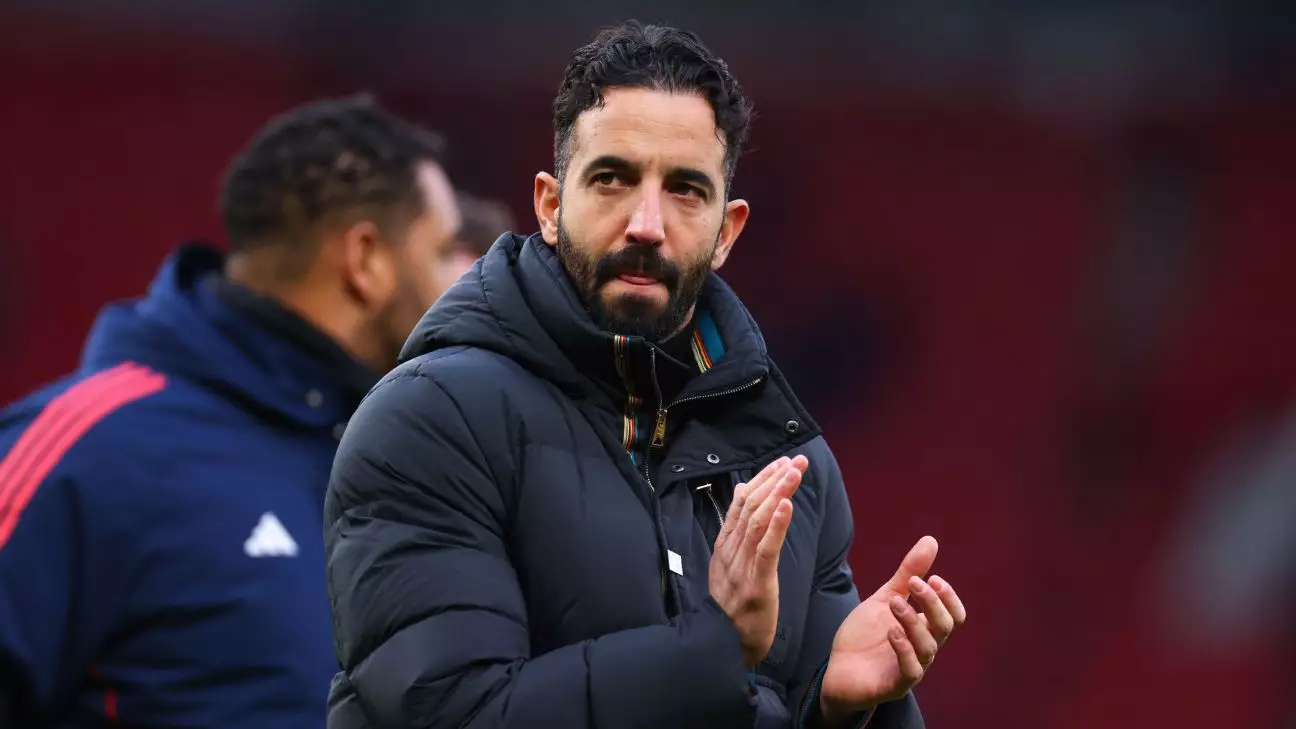In recent months, Manchester United has found itself embroiled in an acute financial crisis, a predicament exacerbated by both poor on-field performance and an intricate web of cost-cutting measures. The club’s financial mismanagement has led to staggering losses totaling £300 million over the past three years. These figures not only reflect the team’s struggles in the Premier League but also have dire consequences for its employees. The announcement that 250 staff members were laid off over the summer is a clear indication of the severity of the situation, as part-owner Sir Jim Ratcliffe implements drastic measures to stabilize the financially beleaguered club. As reported by ESPN, further layoffs may still be on the horizon, signaling a difficult road for the club’s community.
In light of the ongoing layoffs, Ruben Amorim, the current head coach, has voiced a sentiment that bears the weight of numerous stakeholders. He acknowledges a profound sense of responsibility not just to the footballing community but also to the wider staff who depend on the club for their livelihoods. Amorim emphasized that the first team cannot turn a blind eye to the repercussions their performance has on those who work behind the scenes. “People are losing their jobs so we have to acknowledge that the biggest problem is the football team,” he stated, stressing that the players and coaching staff must do their part in reversing the tide. The emotional toll on employees facing job insecurity naturally seeps into the club’s culture, making it imperative for the team to rally together and uplift both morale and results.
One of the most daunting challenges facing Amorim and his team is the difficulty of rebuilding the squad under stringent financial constraints. “We spent a lot of money in the past, and now we have to be careful with finances,” he noted, highlighting the restrictions placed upon management due to the club’s dwindling revenues. The failure to qualify for the Champions League last season diminished income streams significantly, forcing the club to take a hard look at its spending. As Amorim put it, the club’s previous financial decisions are haunting its current aspirations. The state of the squad, coupled with a lack of funds to attract new talent, leaves the coach with the unenviable task of improving the team’s competitiveness while simultaneously navigating a fiscal minefield.
In discussions surrounding the ongoing crisis, Amorim remains proactive about the potential for game day to become a turning point. He asserted that victory against Tottenham Hotspur could provide a much-needed morale boost, not just for the team but for the entire workforce reliant on the club’s success. “To change that, the first thing we should do is win at Tottenham,” he remarked. This perspective illustrates a constructive approach to the daunting reality faced by Manchester United; internal change must start with positive performances on the pitch. A win could help alleviate some tension regarding job security and demonstrate to staff members that their contributions matter.
In parallel with discussions about team performance and employee welfare, there exists a pressing need to engage with the fanbase transparently. The recent correspondence from the club to fan groups laid bare the challenging choices ahead, revealing that sustainability hinges on long-overdue changes. If Manchester United wishes to walk the fine line between maintaining financial health and nurturing its passionate fanbase, clearer communication regarding risks and strategies is paramount. In the lengthy letter, the club explicitly warned of the ramifications if prompt action is not taken. The acknowledgment of ongoing losses and the potential threat to compliance with regulatory financial measures should resonate deeply, not just among shareholders but also among supporters.
Ruben Amorim’s reflections on the current predicament at Manchester United resonate beyond the pitch, echoing the collective responsibility of players, staff, and management. The intertwining challenges of financial instability, employee welfare, and team performance create a complex narrative that requires skillful navigation. Overcoming the current hurdles will not only necessitate tactical changes on the field but also a reevaluation of how the club communicates and engages with its community. The call to action is clear: success is required, not just to fulfill expectations but to safeguard the very essence of what Manchester United represents to its loyal supporters and dedicated workforce.

